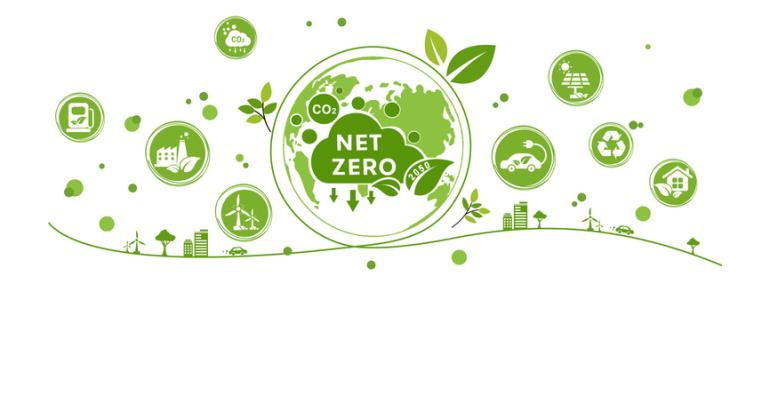“In theory, theory and practice are the same. In practice, they are not.” This quote has been attributed to many famous people, but it might just as easily come from Alex Alles, executive director of the Joint Meetings Industry Council, talking about the Net-Zero Carbon Events initiative.
NZCE is now working on the implementation phase of a years-long campaign to move meeting and convention-industry organizations toward net-zero carbon emissions by 2050.
“Indeed, it’s quite an exciting time for us because when you look at everything that’s been created so far, it’s pretty theoretical,” says Alles. However, with the publishing of seven comprehensive best-practices documents last December, the focus has shifted. “It was important for us to work through the theory; it is the base to build the house further,” he says. But for 2024, the new NZCE projects aim at driving adoption of the sustainability practices.
Alles described four initiatives for this year that will help to bring the NZCE efforts from the theoretical to the practical:
Materials Library
“The materials library is an exciting project,” says Alles. “What we plan to do is provide the industry with a catalog of the most common materials used in the exhibition space along with the equivalent of carbon typically generated in the manufacture of those materials.” For example, “If you’re building a stand for your exhibition and using aluminum framing, the materials library will list the carbon footprint for the production of the aluminum,” says Alles, who expects the materials library to be “a go-to document, especially on the exhibitions side of business events.”
NZCE is working with the International Federation of Exhibition & Event Services on the project, which is already underway and expected to be completed in the third quarter of this year.
Best Practices for International Associations
Another new NZCE project focuses on creating a set of sustainability best practices specific to “internationally active associations.” Working with the International Congress and Convention Association, the European Society for Association Executives, and Boardroom, a media resource for associations, NZCE is designing a survey to learn more about the sustainability strategies for these kinds of associations and the conventions and other events they run.
By October, Alles hopes to publish the best practices as “inspiration for other internationally active associations to follow suit, because we know that a lot of stakeholders are struggling with sustainability.” He says it’s important to meet associations where they are, including those “still in the very beginning of their sustainability journey, and to extend a helping hand.”
While NZCE published a series of best-practices documents in December covering waste management, logistics, food waste, carbon offsetting, measurement, and more, this new project will provide niche advice aimed at international associations. “Step by step, we want to differentiate between various stakeholder groups to make [sustainability] easier and more tangible for them.”
After April 17, the Joint Meetings Industry Council will have some specific insights to add to the best-practices conversation—it will be measuring the sustainability of its own event for the first time when EU Dialogue: Driving Positive Change in the Meetings Industry takes place in Brussels. “We’ve rolled out all this methodology, now we get to see how difficult it is to actually implement it in practice.”
Better Stands
Another 2024 initiative for NZCE is to make Informa’s standards for sustainable exhibit booths the standard for the entire industry. In 2020, Informa (MeetingsNet’s parent company) launched its Better Stands program to encourage exhibitors to build booths out of recyclable materials and reduce event waste.
Alles says they are discussing bringing the Better Stands program “under the NZCE umbrella so that the great job Informa has done is scaled up and being used by stakeholders around the world.”
Educational Webinars
At the end of 2023, NZCE ran a series of free webinars to introduce its best-practices documents. In 2024, it will begin a new series focused on organizations’ efforts to create and follow their “roadmap” to net-zero carbon emissions. The first will be led by event organizer RX on April 17, and Alles hopes to have as many as 10 over the course of the year, publicized via social media, in mailings to supporters, and on the NZCE website.
All NZCE signatories pledge to achieve net-zero by 2050 and must publish a roadmap on how they will achieve that goal. The webinars will tackle the strategies and challenges of creating the document. “It will be open and honest talk about how they did it,” says Alles, “because it's really such a difficult task. A lot of people don't even know where to start. Of course, they have the Net Zero Carbon Events overall roadmap to take inspiration from, but in order to design your own it’s not an easy task. We want to help as much as we can by giving these examples.”





